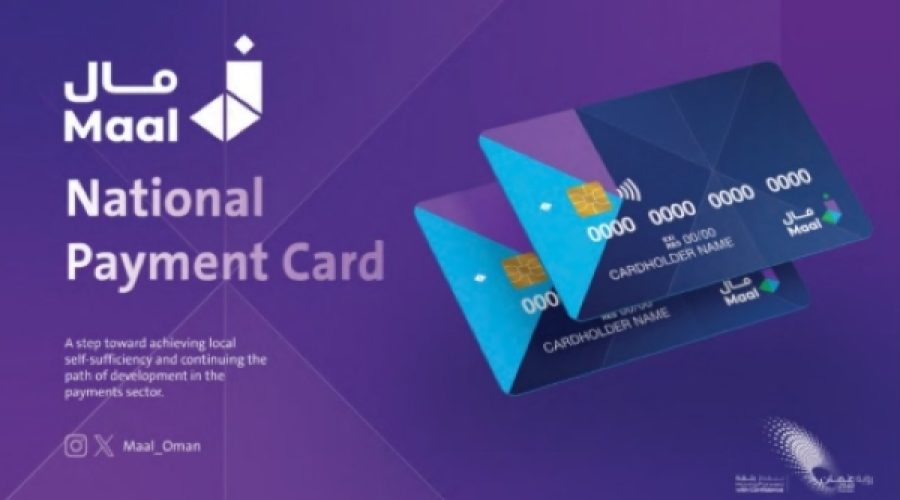CBO Unveils New Brand Identity for Oman’s National Payment Card: Implications for Businesses and Investors
The Central Bank of Oman (CBO) has announced the brand identity of the national payment card, which will be named ‘Maal.’ Banks across the Sultanate of Oman are actively engaged in the project, which is expected to launch in the coming months.
Maal represents a significant step towards achieving local self-sufficiency and furthering development in the payment sector. The CBO has stated that local banks will soon issue this national payment card under its supervision, marking an extension of the national payment systems known as Oman Net.
According to the Central Bank, the Maal card will deliver a secure and seamless payment experience throughout Oman, contributing to the nation’s goal of enhancing local self-sufficiency and advancing the payments sector.
The introduction of the national payment card aims to strengthen the digital economy, reduce operational costs, enhance cash flow, improve financial inclusion, and decrease reliance on foreign payment solutions.
In the Gulf Cooperation Council (GCC), other nations such as Qatar, the UAE, and Saudi Arabia have successfully launched their own national payment cards. For instance, Qatar’s Himyan, a brand managed by the Qatar Central Bank, serves as the country’s first national payment card. This initiative aligns with the Central Bank of Qatar’s efforts to develop and improve digital payment systems.
The Himyan card provides customers of banks and financial institutions with options that cater to their growing needs, reflecting the increasing demand for financial technology services and bolstering the national brand.
Transactions using debit cards are processed via point-of-sale devices, enabling purchases from local e-commerce platforms, while cash withdrawals and deposits occur through ATMs. Notably, prepaid cards associated with the Himyan initiative do not require a minimum balance and can be issued without a bank account.
In the UAE, the Jaywan national card offers a locally developed alternative to internationally issued debit and prepaid cards. Similar to the Himyan, the Jaywan card allows users to make purchases and withdraw cash directly from their bank accounts, providing a convenient and secure means of managing everyday expenses. Prepaid cards serve as useful budgeting tools, allowing users to load a specific amount of funds for controlled spending in various scenarios, including travel or gifting.
In Saudi Arabia, the Mada card functions as the national debit card, widely accepted for transactions, especially online, contributing significantly to the digital payment landscape in the country.
Special Analysis by Omanet | Navigate Oman’s Market
The launch of the Maal payment card represents a pivotal moment for businesses in Oman, promising to enhance financial inclusion and reduce dependency on foreign payment solutions. This move not only opens avenues for cost-effective operations and improved cash flow but also positions Omani enterprises to leverage a growing digital economy. Investors and entrepreneurs should capitalize on this shift by exploring partnerships with local banks and tech firms, aiming to align their offerings with the increasing demand for integrated financial services.



